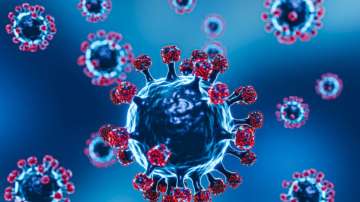The covid-19 pandemic is hitting hard since March 2020. It took a massive toll on people's lives and also posed great challenges to the country's medical infrastructure. Now, with the speculation of a possible new wave, it has become even more important for everyone to stay vigilant and be on their guard.
Keep yourself and others safe:
- Get vaccinated as soon as it’s your turn and follow local guidance on vaccination.
- Keep a physical distance of at least 1 meter from others, even if they don’t appear to be sick. Avoid crowds and close contact.
- Wear a properly fitted mask when physical distancing is not possible and in poorly ventilated settings.
- Clean your hands frequently with alcohol-based hand rub or soap and water.
- Cover your mouth and nose with a bent elbow or tissue when you cough or sneeze. Dispose of used tissues immediately and clean hands regularly.
- If you develop symptoms or test positive for COVID-19, self-isolate until you recover.
The risks of getting COVID-19 are higher in crowded and inadequately ventilated spaces where infected people spend long periods of time together in close proximity. Outbreaks have been reported in places where people have gathered, often in crowded indoor settings and where they talk loudly, shout, breathe heavily, or sing such as restaurants, choir practices, fitness classes, nightclubs, offices, and places of worship.
- Avoid the 3Cs: spaces that are closed, crowded or involve close contact.
- Meet people outside. Outdoor gatherings are safer than indoor ones, particularly if indoor spaces are small and without outdoor air coming in.
- Regularly and thoroughly clean your hands with either an alcohol-based hand rub or soap and water. This eliminates germs that may be on your hands, including viruses.
- Cover your mouth and nose with your bent elbow or a tissue when you cough or sneeze. Dispose of the used tissue immediately into a closed bin and wash your hands.
- If you have a fever, cough and difficulty breathing, seek medical attention immediately. Call by telephone first and follow the directions of your local health authority.
- Know the full range of symptoms of COVID-19. The most common symptoms of COVID-19 are fever, dry cough, tiredness and loss of taste or smell. Less common symptoms include aches and pains, headache, sore throat
Disclaimer: The article is for educational and informational purposes only. It does not constitute as medical advice. Please consult a doctor before starting any treatment.
Also Read: Covid BF.7 Variant Spread: Strengthen your immunity by adding THESE things to your diet
Also Read: Covid-19 Omicron sub-variant BF.7 won't lead to severe disease, expert's report
